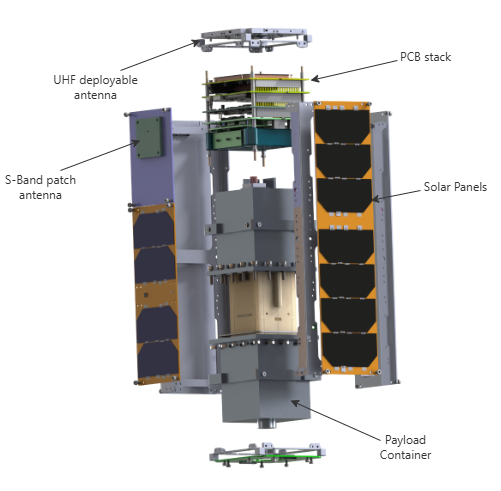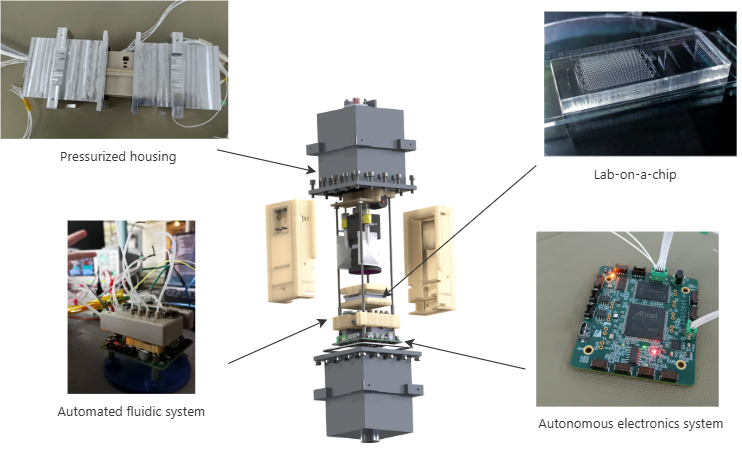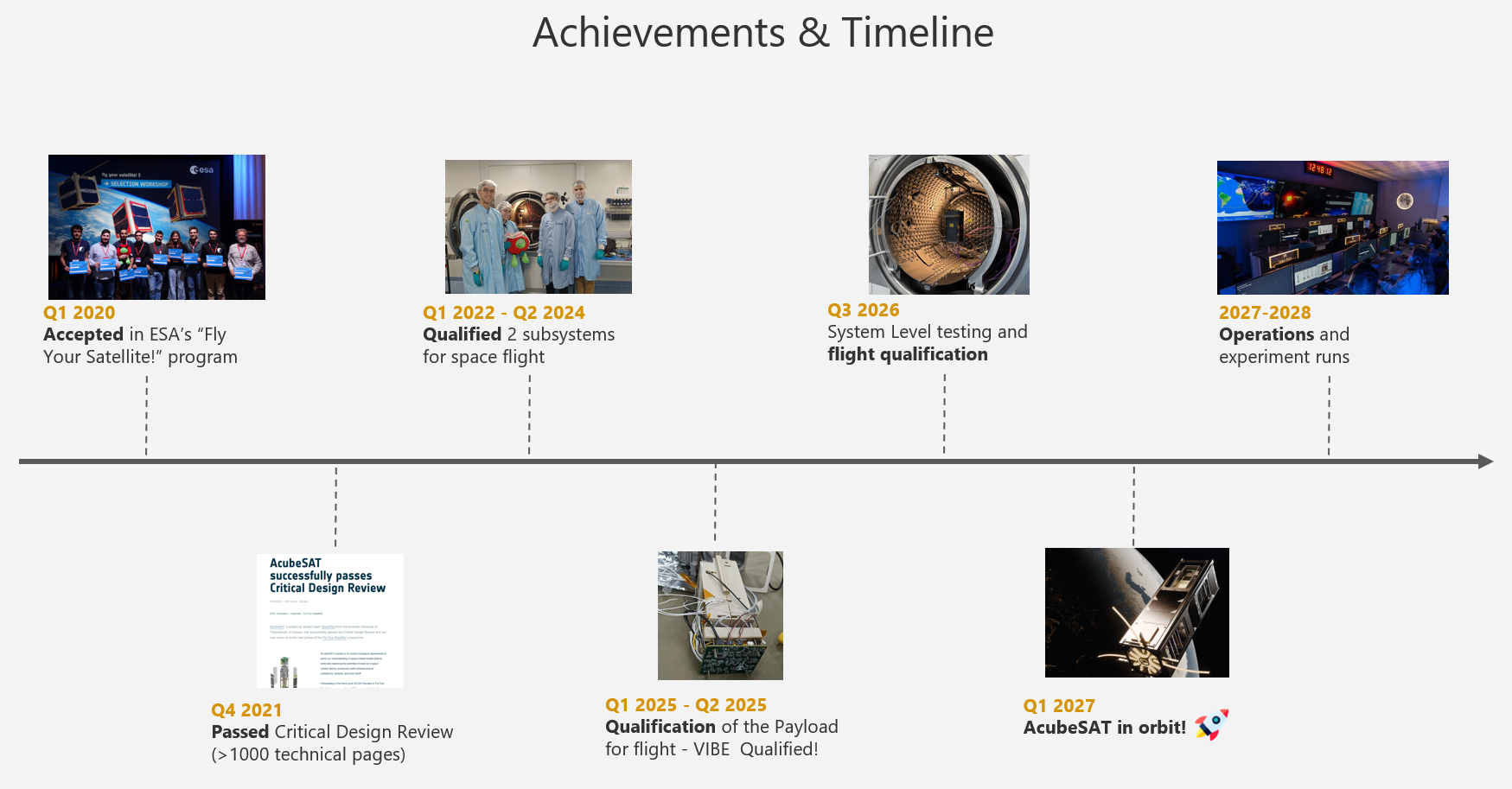About
AcubeSAT: SpaceDot’s first project
The development of AcubeSAT started even before SpaceDot was born! AcubeSAT is a 3U+ CubeSat (340.5x100x100 mm + tuna can) designed and developed by students primarily based at the Aristotle University of Thessaloniki in Greece. The satellite will study the effects of microgravity and cosmic radiation on human-like cells and is supported by the Education Office of the European Space Agency through the “Fly Your Satellite!” programme.

AcubeSAT’s Mission
Our mission was inspired by a fundamental question: Can we perform large-scale, biology-focused research in outer space, beyond the boundaries of crewed spacecraft, such as the International Space Station (ISS)? And if so, could this be achieved in a low-cost, scalable, and reproducible way, enabling us to explore complex challenges such as the long-term effects of space conditions on human health?
Nearly 700 humans have traveled into space, offering valuable insights into the physiological effects of spaceflight. While many studies have characterized systemic-level changes in human health and performance, our understanding at the cellular and molecular levels, where many of these effects originate, remains fragmented and insufficient.
From the more than 4400 nanosatellites listed in the Nanosats database, less that 0.3% were designed to study a system of biological nature. Furthermore, the experiments performed were low-scale (e.g. 1-3 genes), with low-resolution observations in a rather short timespan.

AcubeSAT will carry a miniaturized space biology laboratory (which can be seen above), capable of performing in situ, high-throughput measurements of microorganism functions in space. Our system combines parallel microfluidics (lab-on-a-chip), imaging, automated fluidic control, and environmental monitoring to enable long-term experiments. These experiments will study gene expression on a scale 100–200 times greater than previous missions, while also providing high-quality visual observations over an extended, multi-month mission. The platform is modular, reflecting the open-source and open-access philosophy we embrace. We aim to leverage our findings to better understand the molecular effects of space conditions on humans. The model organism we use (S. cerevisiae) is one of the most important biotechnological strains, widely applied in biofuel and medicine production. Ultimately, we hope that the knowledge gained will bring humanity one step closer to realizing deep space exploration.
Timeline

The “Fly Your Satellite!” programme
Since early 2020, AcubeSAT has been part of the “Fly Your Satellite!” programme of the European Space Agency’s Education Office. Our members and mission benefit from:
- Frequent interactions and advice by ESA experts
- Access to a dedicated testing for AcubeSAT and its subsystems in Belgium
- Exclusive workshops on a variety of topics relating to space engineering
- A launch opportunity funded by ESA once AcubeSAT passes its environmental test campaign at system level
- Milestone reviews by ESA experts
In exchange, we provide ESA extensive documentation about AcubeSAT and we comply to ESA’s technical and programmatic rules. As “Fly Your Satellite!” is one of the cornerstone programmes of the Education office, our members have the unique opporunity to complement their academic knowledge with hands-on experience designing, testing and operating a spaecraft.
Our vision
AcubeSAT is an educational project meant to first and foremost pave the way for innovative research. To make space more inclusive and approachable, we design a low-cost, scalable and easily reusable laboratory platform. Furthermore, we strive to share all experiment results, code, schematics and knowledge gained, as well as output heavy educational work, staying true to our ideals.
With this project, our team aims to generate and dissipate knowledge within the academic and corporate community about the prospects and opportunities of aerospace engineering and applications, while also introducing and engaging the general public with the space capabilities of Greek academic institutions. In doing so, we seek to address the limited expertise currently observed at the national level.
So far, we have had more than 200 members participate in the project since 2018: many of them have used the expertise gained from AcubeSAT to kickstart and boost their careers in the space sector and beyond, showcasing the high level of technical excellence that our team strives for, which is highly sought after in both academia and industry.